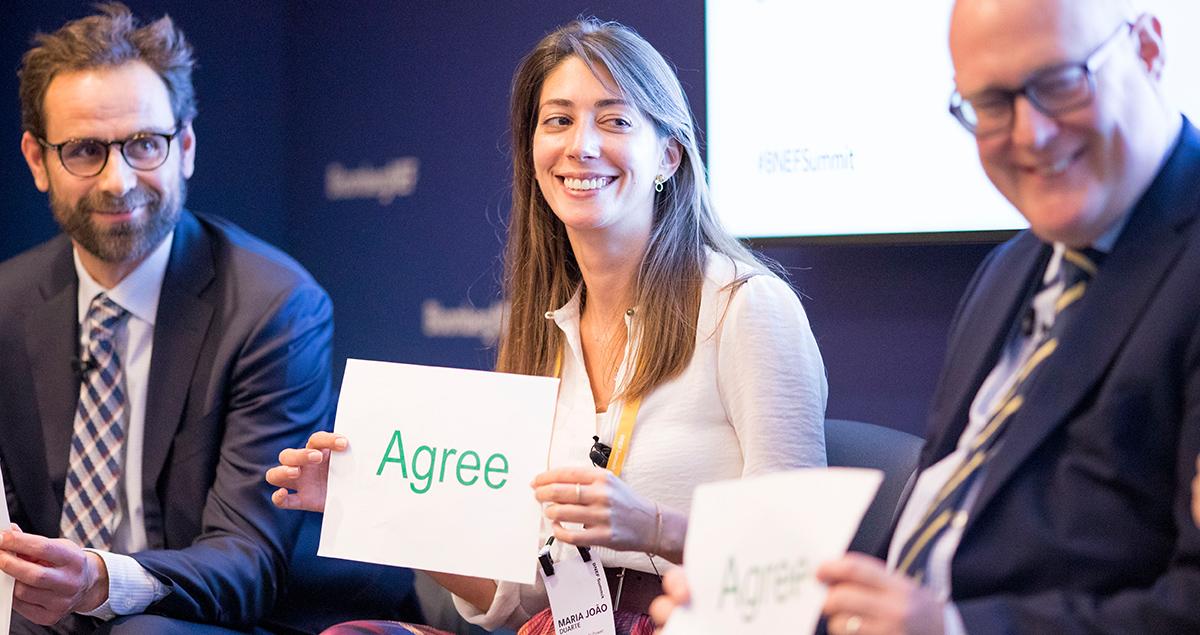Europe’s new love affair with hydrogen

Index
Hydrogen is rapidly rising-up the political agenda. According to the IEA there are more than 50 policy initiatives in place to support hydrogen across the globe, with 11 major countries developing national roadmaps for hydrogen energy. Six of these countries – the UK, Austria, the Netherlands, Germany, France and Italy – are in Europe, and the EU and European Commission are supporting multiple demonstration projects through various funding schemes.
Mitsubishi Hitachi Power Systems’ representative to the EU Institutions, Maria João Duarte, explains why hydrogen is gaining in prominence across Europe.
1. What role can hydrogen play in helping us reach zero carbon emissions by 2050?
Commission President Ursula von der Leyen has the ambition to make Europe the first climate neutral continent in the world by 2050. Hydrogen has been widely recognized globally as an enabler to achieve carbon neutrality. Its versatility is its strength. It can be used as a feedstock to decarbonize products and processes in the steel and chemical sectors for example, as a fuel in the mobility, heat and power sectors, and as seasonal energy storage for the integration of more renewable energy in the electricity and gas grids. The applications are wide and promising, not only for hydrogen itself but also for hydrogen-based fuels and feedstocks, like methanol.
This has been acknowledged across European governments and industries, who jointly signed the Hydrogen Initiative under the auspices of the Austrian Presidency in September 2018. MHPS is a co-signatory of this initiative.
2. There are many schemes being developed in Europe around hydrogen use – why?
Hydrogen is increasingly being recognized as a critical element of any carbon neutral strategy. Funding schemes such as the Fuel Cell and Hydrogen Joint Undertaking (FCHJU) offer support for developing and deploying hydrogen as an energy storage for renewables like offshore wind. The EU also plans to launch the Innovation Fund, which is a promising tool to support hydrogen applications in hard-to-abate sectors such as steel manufacturing. For the past 10 years the focus was on power generation and how to decarbonize it. But now EU policy is really looking at sectors that are more difficult to decarbonize. There is a big focus on steel, but the EU is also looking at refineries, the chemical sector and transport, including heavy-duty and maritime transport.
We will certainly see more of these types of initiatives as we move forward with more countries starting to develop initiatives around hydrogen. At the EU level, Frans Timmermans, Executive Vice-President in charge of the European Green Deal, has recognized the need to develop a European Hydrogen Strategy in this coming political cycle.
3. Which schemes and test projects are showing the most promising signs of full-scale development?
Hydrogen involves complex supply chains. So the projects which look at scaling-up production alongside transport, storage and consumption of hydrogen have the most potential.
The Netherlands – and its cooperation with other European countries – holds some of the most promising projects. For example, at Vattenfall’s Magnum power plant in Groningen, Mitsubishi Hitachi Power Systems is working to convert one of the three combined cycle gas turbines to combust only hydrogen by 2025. In addition, working with fuel admixtures - seen as an additional option to hydrogen-only gas turbines – MHPS has also successfully tested the burning of a stable fuel mix of 30% hydrogen with natural gas in a large-scale gas turbine, reducing its CO2 emissions by 10%.
The strategic value of such schemes, which develop hydrogen applications for the decarbonization of industry, has been recognized by the European Commission’s Strategic Forum for Important Project of Common European Interest.
4. What excites you about hydrogen in Europe at the moment?
There are so many reasons to be excited about hydrogen in Europe right now.
Hydrogen is pretty much on everyone’s agenda, as there is an overwhelming agreement among players on the importance of hydrogen in a carbon neutral Europe. Several Commissioner designates have mentioned it in their hearing at the European Parliament earlier this month and we are looking forward to what the new Commission will put in place. A Hydrogen Strategy for Europe perhaps, who knows? More and more European countries have hydrogen on their political agenda. But Europe is only one piece of the puzzle – there is global consensus on hydrogen’s importance. This is reflected in the Global Action Agenda on clean hydrogen, adopted in September at the Hydrogen Energy Ministerial Meeting, hosted and presided over by Japan. I’m looking forward to the next political cycle in the EU.
5. What lessons – both in terms of successes and failures – could the rest of the world learn from Europe about hydrogen?
It’s perhaps too early to talk about successes or failures. Europe’s focus is on accelerating the production of green hydrogen from renewable sources, but there’s still a long way to go and most likely this will not happen at scale until 2030. In the meantime, it will have to rely on large-scale conventional production methods combined with carbon capture technology – otherwise known as “blue” hydrogen. Nevertheless, Europe needs to put in place the right policy and regulatory steps to get there, together with appropriate investment signals. In the same way political decisions have guided the development of renewables, policymakers in Europe will determine if scaling up the hydrogen sector or facilitating use of carbon capture technology for blue hydrogen is a viable proposition.





